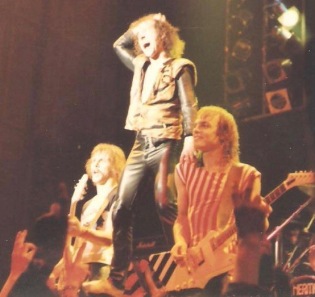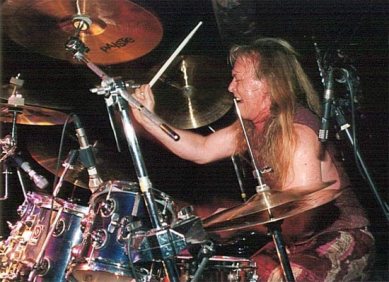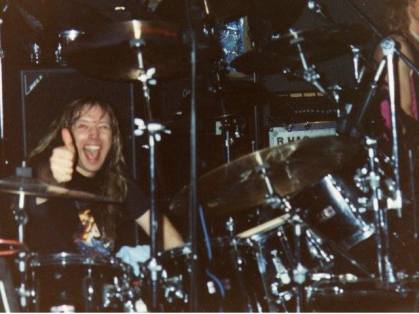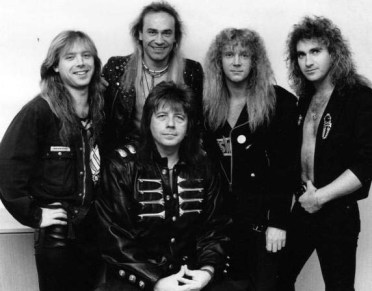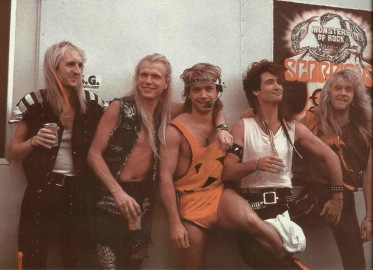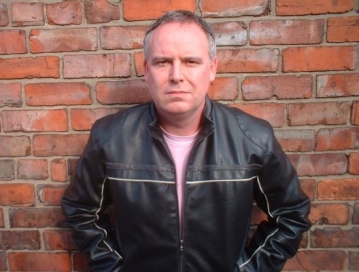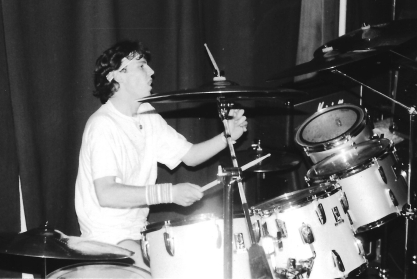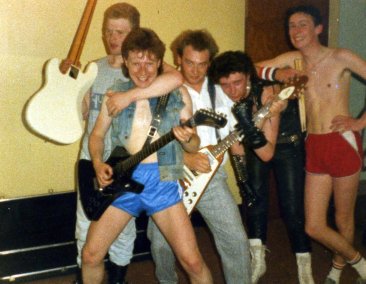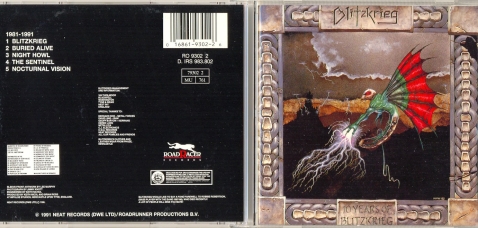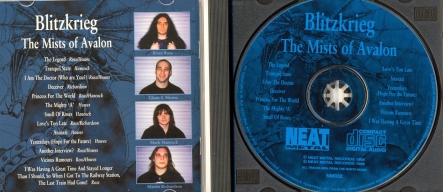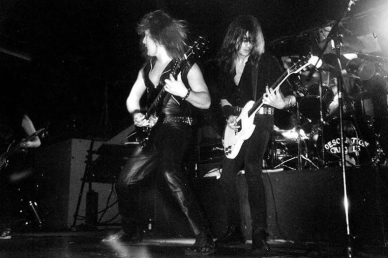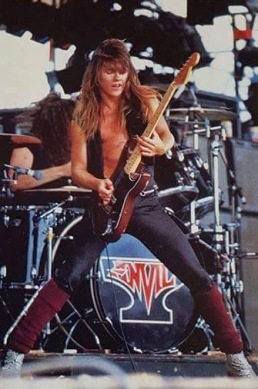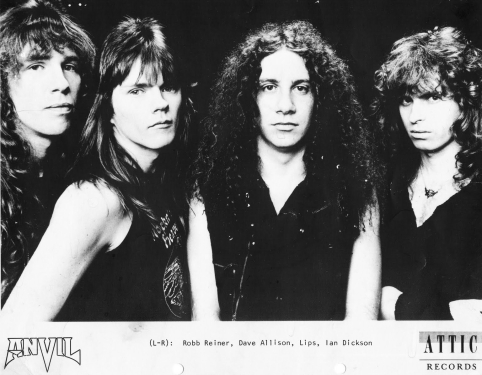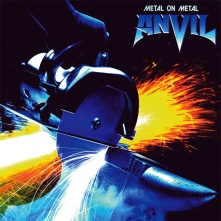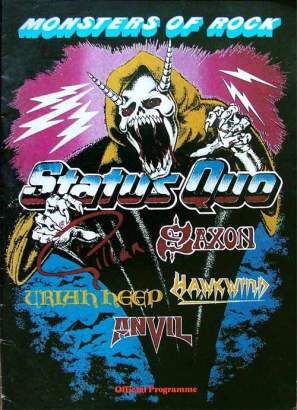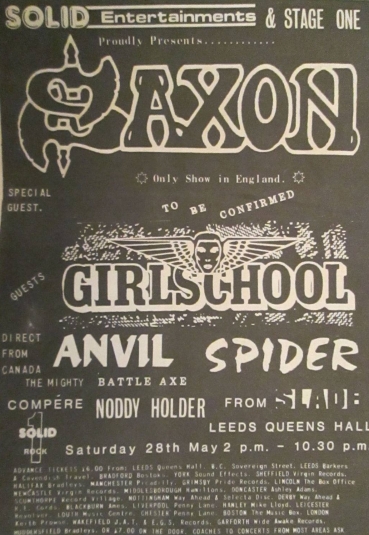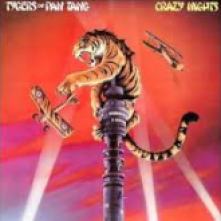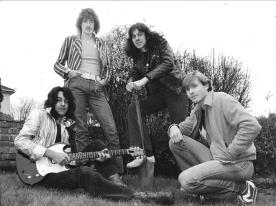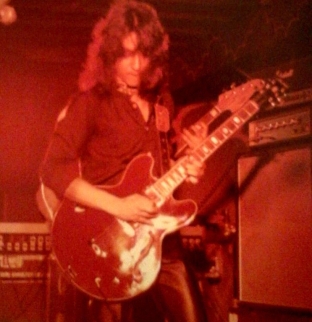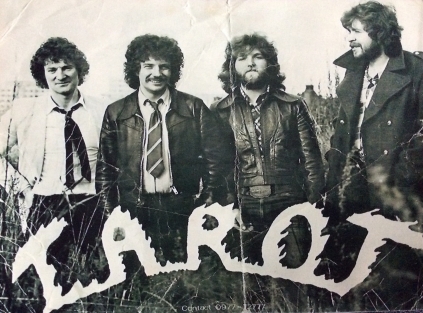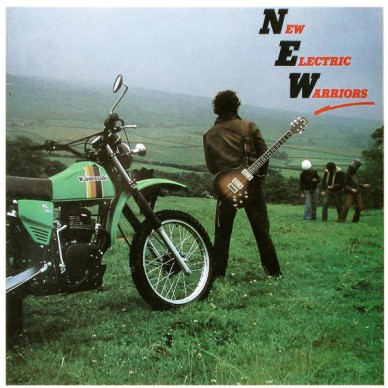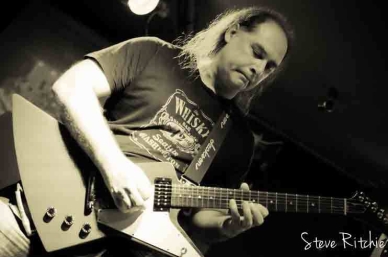
How did you get involved in music and who were your influences ?
‘I was born in Ghana. My dad was working for the British Colonial Service out in West Africa as a doctor/surgeon specialising in tropical medicine.
His transport in those days was a horse, and with two saddle bags full of medical supplies. Dad travelled from village to village coming across things like black magic and cannibalism.
In 1959 my mum wanted to return home to the UK and in particular the North East of England.
When we came home Dad worked as a medical officer of health and later went into general practice in South Shields. To get to work my father had to get the ferry across the river Tyne from North Shields to South Shields.
One day he came home with a nylon strung Spanish guitar. He bought it from a junk shop I think. Dad was very musical and had trained in classical piano. To be honest he could pretty much play anything. He thought it might be fun for me to try and learn how to play.
In our house there were records by Elvis, Little Richard, The Beatles and the Stones and I used to play along with them. I didn’t have any music lessons I basically taught myself how to play, I’m still learning one day I’ll get the hang of it!’
‘I started listening to Slade, Status Quo, Black Sabbath and then around 1974 I started going to the Newcastle City Hall and Mayfair to see every band you can think of.
I became great friends with the manager of the Mayfair, Steven Lister who worked for the Mecca Association. I’d ring him up and ask who was playing and he’d leave my name on the guest list. I think it was after the first time Tygers of Pan Tang played there in ’79 that we became friends’.
The Tygers of Pan Tang formed in Whitley Bay in 1978 and by the early ’80s they had a lot of success. Can you pinpoint the time when the Tygers career took off ?
‘In 1979 we went into Impulse Recording studios in Wallsend and recorded, ‘Don’t Touch Me There.’ It had a release number 003 so we were in at the beginning of the Neat Record label story. We were the first heavy metal band to be recorded in the studio.
So I’m very proud of the Tygers launching the label and giving the Neat label a direction. Impulse studios took a chance and pressed 1,000 copies, that was a lot for a small independent label.
Our drummer’s girlfriend used to sell the single for us on the door of the venues we played like the Boilermakers in Sunderland, the Central club in Ashington and other workingmen’s clubs in the North East of England. That’s the gigs we used to play in the early days before the big time arrived.
At that time workingmen’s clubs were full of men from the shipyards and mines. Most had long hair, jeans, tattoos and listened to rock music.
All around the country the rock scene on a Friday night was huge and all the shows were packed. To see a band you had to get your arse out of the house, go to the bus stop in the pouring rain and get to the club.
You couldn’t see a concert on the internet in those days! We were definitely in the right place at the right time’.
‘Don’t Touch Me There’ was reviewed in Sounds newspaper which made a massive difference to awareness, so the next pressing was 4,000 copies! Then Dave Woods the label owner at Neat records was approached by MCA record company, they wanted us!
So Dave did a deal, essentially selling the Tygers to them. MCA pressed around 50,000 copies of the single! But our success still hadn’t really sunk in.
We were caught up in the moment I guess, you’re just in a giant musical blender getting whizzed around with all the other acts.
One of my more defining moments was when the album Wildcat came out. I got my first physical copy of it in my hand and showed my parents. They said yes that’s great, but it would be nice if you got a proper job! I guess they just wanted the best for their son.’
Were you aware of the New Wave Of British Heavy Metal ?
‘Only when I read about it in Sounds! It was a three or four page spread by Geoff Barton. He had started writing about the music – he coined the phrase NWOBHM.
Geoff wrote about four bands initially – Iron Maiden from London, Def Leppard from Sheffield, Saxon from Barnsley and the Tygers from Whitley Bay. Reading it I thought, so we’re NWOBHM eh (laughs).
Listening back to Wildcat I didn’t realise how much punk had jumped into my head song writing wise. Well a rock voice on any song from Never Mind the Bollocks album would have turned that iconic punk album into a hard rock album. Steve Jones with his Les Paul and Marshall stack – had a great hard rock sound’.

The Tygers were originally a four piece then changed to a five with the addition of guitarist John Sykes…
‘We recorded Wildcat in Morgan Studio’s in Wilsden, North London with Chris Tsangarides producing. We had just finished 11 days recording the album – which was very quick. We’d been playing those songs on Wildcat for two years on the road so we knew them inside out and for the recording process.
Chris put forward a few production ideas. For example, I played a guitar solo through a Lesley cabinet which is normally associated with keyboard players.
The top of the cabinet has horns inside and they spin when activated. So Chris had this idea of playing the guitar through it to see what it would sound like.
He was quite inventive, and it worked really well. I think we recorded the harmonic bit in Slave to Freedom that way and something else I can’t quite remember’.
‘1980 was a really busy year for us, we completed several tours supporting established bands. The Tygers went out with Magnum for three weeks in the March, they were promoting their new live album Marauder which Chris had just produced.
We then went out with the Scorpions on their Lovedrive tour, then we did the On Through the Night, tour with Def Leppard. There was three weeks with Saxon on the Wheels of Steel tour and we did shows with Iron Maiden and Whitesnake as well’.
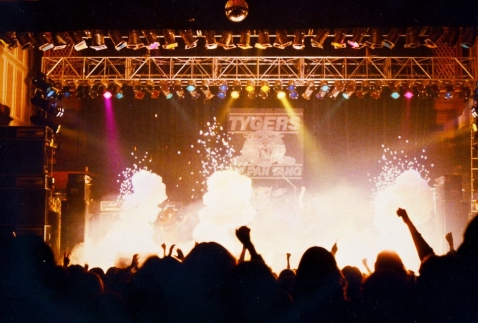
‘Apart from Magnum, all the bands we opened up for where two guitar bands. When I played a guitar solo there was no rhythm behind it so the sound would drop. It was felt that to give the band a bigger, fuller sound we needed to add another guitar player.
So our management and I.T.B (International Talent Booking) our agent down in Wardour Street, London said we think it would be better if the band added an additional guitar player. So after Wildcat was recorded we advertised and held auditions at Tower Bridge rehearsal studios, London.
About 80 guitar players were invited down. There were two that stood head and shoulders above the rest and that was John Sykes and Steve Mann, who had just come out of a band called Liar.
Steve went on to play with MSG and Lionheart who have just reformed. Steve now lives in Germany where he is a record producer. Steve played guitar and saxophone – John just played one hell of a guitar as you know.
John had everything, he was six foot tall, long blonde hair, stunningly good looking, incredible guitar player, great singer, good songwriter, although he never knew it at the time as he was just starting out – and the girls loved him, they fell at his feet.
He was so much better at playing the guitar than me I thought to myself, I’d better up my game here.’
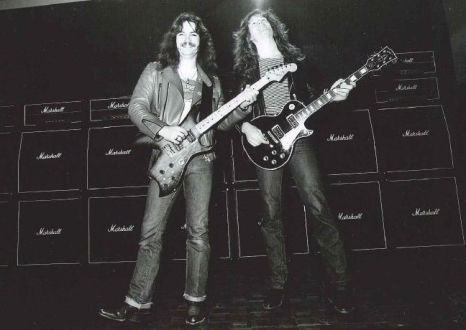
Was John in a band previously ?
‘He was in a covers band in Blackpool called Streetfighter, and they were fronted by bass player Merv Goldsworthy who is now in FM. Merv and I remain good friends both the Tygers and FM were on the Cambridge Rock festival bill earlier this year. Streetfighter were famed for their exceptional Thin Lizzy covers’.
(Streetfighter appear on a 1980 heavy metal compilation album New Electric Warriors).
‘John was at my house one day and I was showing him the root chords from the songs on Wildcat and he said in a cockney accent ‘Ere Robb I’m fackin’ sick of this I’ve got this fackin’ idea what do you think of this’. He played me some chords, I said ‘I really like that I’ve got something that will go with that’.
He replied ‘Fackin’ hell we got a song there, let’s go for that’. So we spent the rest of the day forgetting the set we were learning for the upcoming Wildcat tour and wrote Take It, which we recorded for the Spellbound album, unfortunately is the only song we wrote together’.

Sykes went on to co-write and record two albums with the Tygers. ‘Spellbound’ was his first along with new vocalist Jon Deveril who had replaced Jess Cox. How did Jon Deveril get the job with the Tygers ?
‘John Sykes first gig was Reading festival, 1980 with Whitesnake headlining, there was 42,000 people there!
What happened was we had done the Wildcat tour, it was a sell out across the UK – Mayfair’s and Locarno’s and places like that, they all had a capacity of 2,000 people.
There was a big buzz in the music press about us, we were getting full page adverts in Sounds, NME, Melody Maker and Record Mirror. It was all going well, really well.
But there was a meeting with our management and Rod MacSween our agent who said ‘With the singer you have at the moment we can’t really further the career of the band outside the UK’.
So our management took the decision to change the line up even though Wildcat had been so successful. We took this forward and advertised for a singer.
We knew we were in a good position to get a great response because in the national charts Wildcat entered at number 13 and around us were the likes of Bowie, Aretha Franklin and Earth, Wind & Fire.
All those multi platinum artists and here’s the little ‘ol Tygers of Pan Tang from Whitley Bay hanging in there. We were hoping it would do well but never expected it to do that well – it was fantastic.’
‘We had a huge response for a new vocalist with well over 130 singers turning up. But again there was one who was head and shoulders above everyone else, and that was Jon Deverill.
A lad from the Welsh Valleys with a huge voice, he walked into the job really. So he moved up from Cardiff, his home city to the North East. Our management got him a place to live with John Sykes and we immediately started writing songs for Spellbound. So the Tygers story rolled on’.
‘We were living down in London and the Angelic Upstarts were down there at the same time. We were signed to MCA records and they were signed to EMI.
I remember Mensi their singer sold second hand jags to supplement his income. The drummer Decca would also make a few quid.
When the likes of Praying Mantis or Iron Maiden were playing at the Marquee he’d appear wearing one of those big long trench coats. He would walk around the punters and open up his coat like Arthur Daley and inside were all the latest EMI album releases. He’d sell them out of his coat ha-ha!
Obviously he had acquired them, ‘somehow’ from the EMI offices. It was hilarious to watch – and he always made a few quid.
They were lovely lads you know, I’ve always liked them.’
1981 was a very busy time for the band. They were still contracted to MCA and that year saw the Tygers release two albums.
‘Spellbound’ recorded in Morgan Studio’s in London produced by Chris Tsangarides and released in April. The Tygers third album ‘Crazy Nights’ was recorded at Trident Studios in London and produced by Dennis MacKay. It was released late 1981.
The more successful and commercial sounding album ‘The Cage’ was recorded in 1982. Extra songwriters were used resulting in a couple of singles that charted in the UK.
But there was another line up change. Fred Purser, formerly of fellow North Eastern band Penetration, was in on lead guitar…
‘John got the Lizzy gig because he wanted to push his career further forward. Unbeknown to us he auditioned for Ozzy first but didn’t get that job.
When he got back to the North East the news didn’t go down well with the rest of the band so we got another guitarist in.
From what I gather John’s stepfather, Ron contacted MCA and told them they shouldn’t drop John as he had great potential, which they agreed. So they set him up in a recording studio in Dublin to record a single. In the studio next door was Thin Lizzy.
Inevitably John met up and Lizzy and asked Phil if he would sing on, Don’t Leave Me This Way, John’s first single. Lizzy had just lost their guitarist Snowy White and there it was, the opening for John to join.
We’ve remained friends after everything that has happened. I’ll always have a soft spot for John’.

After leaving Lizzy, Sykes went on to massive worldwide success with Whitesnake, then as a solo artist.
The Tygers played the iconic TV show The Tube, what are your memories of that day ?
‘Yes, it was Christmas ’82. I remember our crew had just loaded our full touring backline of 18 Marshall 4×12’s, stacked three high in cages and fourteen 100-watt Marshall heads onto the stage in Tyne Tees TV studio.
We were in our dressing room and in the distance heard our track Gangland playing, what’s going on here we thought it was getting louder and louder.
Then all of a sudden our dressing room door burst open and standing in the doorway was this huge, blonde, stripped to the waist, head banging monster. We were all shocked.
He had a big cassette player on his shoulder playing at full volume…’You guy’s fuckin’ rock I love you guy’s’. He turned around and walked back out. We looked at each other…‘Wasn’t that Dee Snider of Twisted Sister?’
I’ll never forget that. We talked with them afterwards and they were fantastic, really brilliant. I got what they were all about, the dressing up and make up. Dee was really clever writing those songs, you know the big shouty anthems.’
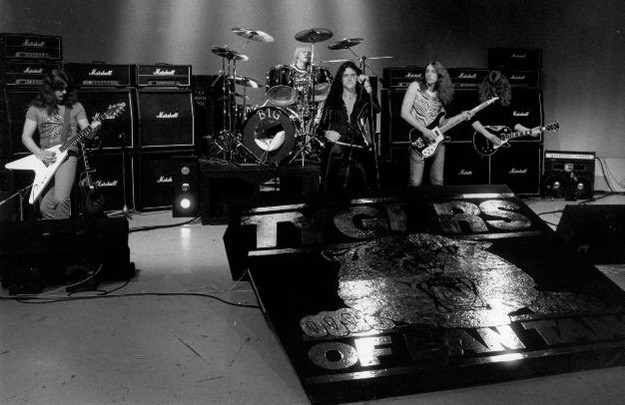
In 1982 Love Potion No. 9 was a hit in the UK charts, did you record many TV appearances for the promotion of the single ?
’We were at Newcastle Central Station two weeks running with our tickets in our hands ready to go down to do Top of the Pops, but both times we were told we are not being included in the show.
One show they said they had the full quota of metal bands, i.e. one! To fill the time and the other show was cut ten minutes short because of a Queens speech – and our spot was in those ten minutes.
But we did appear on TV quite a few times, I remember the Old Grey Whistle Test, The Tube, we did a programme called Something Else on BBC2, there was Tony Wilsons Pop World and we did Friday Night Live on Tyne Tees television. There were more I’m sure.’
You formed a band called Sergeant, how did that come about ?
‘Tygers came to an end for me around late ’83, I was still writing songs, I had a little recording studio to put them together. I had over an album worth of songs.
At this time I was still working with Brian Dick the drummer from the Tygers, he left the band at the same time as me. We recruited a singer and bass player, and named the band Sergeant.
We recorded a 4 track demo at Lynx studio in Newcastle, which was owned at the time by Brian Johnson from AC/DC. The manager of Sergeant, Colin Rowell and I, went down to London and hawked the demo around all the record companies.
Colin had a lot of contacts in the music business. He was working as the stage manager for The Tube music programme on Channel 4 at the time.
There was interest from a guy called Dave Novak head of A&R at CBS records. He came up to see us rehearsing in a hall near Jesmond, Newcastle. He liked us and said why not come down to London play a show with Mama’s Boys at the Marquee and I’ll bring Muff Winwood along, the CEO of CBS.
We’ll do the deal in the dressing room. The initial advance was going to be £60,000.’
‘With this good news we set up a meeting at the Egypt Cottage pub in Newcastle with the other lads. They said great but, ‘We’ve decided we don’t want Robb in the band anymore’. I never got to the bottom of why they didn’t want me in my own band!
I left the pub and Colin walked out with me telling them that ‘The record contract is walking out the door as well’. They were shocked and didn’t expect that, they thought Colin would just carry on as there manager.
They apparently replaced me with a guitar player plus a keyboard player! Nice to know it took two to replace little old me! But they only lasted four or five shows. They supported Accept in the UK, and then disbanded’.
‘Not long after that I got a call from Jess Cox. We met up and eventually ended up recording a song of mine called ‘Small Town Flirt’ which Jess released through the Neat record label as he was working with Dave Woods the label owner at the time.
He also re-released a whole load of other Tygers early demo material. But I wasn’t happy at all with the situation and I just got sick of it all so that’s when I ducked out of the music industry.
Until, out of the blue, I got a call in 1999 which resulted in the Tygers, well I say Tygers !
Jess told me he had called all the previous members and asked them if they could take part in the reformation. Apparently only Jess and I could do it as everyone else had commitments they couldn’t get out of. This is what I was told.
So we hired three fantastic musicians, Gav Gray, Glenn Howes and Chris Percy who were in Blitzkrieg at the time I think, and asked if they could help out.
We actually were the Friday night headliners at the Wacken Festival in Germany. Saxon and Dokken were on before us for goodness sake!
We played in front of 22,000 people that night. I got so badly bitten again by the rock’n’roll bug I knew I just had to put the Tygers back together again somehow.’
Fast forward and the album Ambush was released in 2012 and then in 2016 a self titled album…
’That went into the British charts at number 24, the Danish charts were the record company is based, at 13. The album has done really well.
In 2013, Dean who was our longstanding guitarist from 2000, a good friend and a great player decided he wanted to do other musical things and left so we auditioned and now we’ve got Mickey McCrystal on guitar who is a great guitar player, six foot tall, he’s got the looks and an amazing career in front of him – in the spirit of John Sykes!
Tygers are run as a family, and just like a family we all look out for each other and we get on really well. When on tour we’ve got a reputation amongst hotel managers of being a nice set of lads, we don’t tear the place up – anymore, the hotel managers tell us we can book with them again and again.
Gone are the days when we would set off fire extinguishers on hotel landings and super glue TV’s in the bath!’

What is the feeling in the Tygers camp now compared to 1980’s ?
‘Tom Noble is back managing us, he first managed the band from 1978-82. He saw us play about three years ago in Rome, we had a drink after the show and we said we were putting a new album together.
He asked if we wanted any help. Perfect timing if you ask me. So, it came at a good time for both of us life is SO much easier with Tom.
It’s much better now, back then you were constantly chasing fame and glory, the autographs, photographs, interviews were all great but having to prove yourself all the time, the competition and ego’s – you couldn’t get away from it.
Thing is, you wanted to be recognised, people buying your records meant you were doing well and you were alive. It was a double edged sword really.
However today is a totally different story, we are very pleased that people still choose to come and see the Tygers. Meet and greet is a massive part of our night and we look forward to it, say hi to the fans, sign a few things and talk to people.
The pressure and ego’s are gone it’s so much more relaxed and enjoyable.’

What does music mean to you ?
‘I’ve loved every second of my musical career, the whole ride has been like being sitting at the front of a giant roller coaster, hands up, screaming with delight!
Music is a way of life, it’s a wonderful thing, and it can be your best friend. You can turn to music at any time of your life and it can be a great comforter. I absolutely love it.’
Tygers of Pan Tang are on a UK tour during November 2017. For further info and tour dates contact the official website http://www.tygersofpantang.com
Interview by Gary Alikivi September 2017.
Recommended:
Brian Ross SATAN/BLITZKREIG: Life Sentence, 20th February 2017.
Lou Taylor SATAN/BLIND FURY: Rock the Knight, 26th February & 5th March 2017.
Micky McCrystal, Cat Scratch Fever, March 17th 2017.
Steve Dawson SARACEN/THE ANIMALS: Long Live Rock n Roll, 2nd April 2017.
Martin Metcalfe HOLLOW GROUND: Hungry for Rock, 18th June 2017.
Steve Thompson,( NEAT Producer) Godfather of New Wave Of British Heavy Metal, 27th June 2017.
Richard ‘Rocky’ Laws, Tyger Bay, 24th August 2017.
Dave Allison ANVIL: Still Hungry, 12th November 2017.
